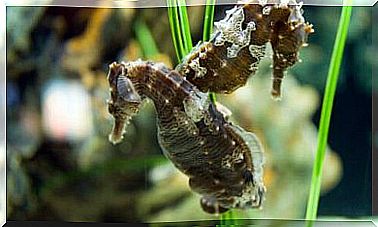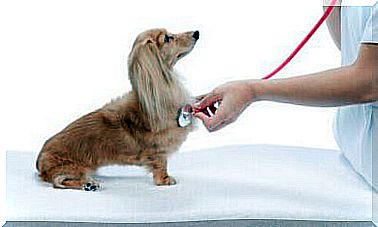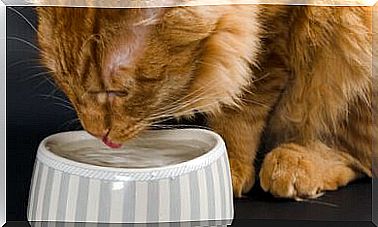Are Carbohydrates Bad For Dogs?

Dog rations with a high protein content are gaining more and more popularity. The reason is the belief that carbohydrates are bad for dogs. But, is this true?
Many owners, due to a disinformation campaign in which marketing played an important role, believe that dogs do not need carbohydrates.
This statement would not be entirely false, as the viability of a dog diet without the presence of grains has been proven. However, the total exclusion of this type of nutrient would be recommended only for dogs allergic to cereals.
Also, another possible reason why carbohydrates are bad for dogs is their supposed inability to digest them. This justification, with the exception of cases of intolerance, is physiologically wrong.
Although dogs do not have salivary amylase, an enzyme needed to break down complex carbohydrates, they do have pancreatic amylase. The presence of the latter guarantees the adequate digestibility of starches.
In what situations are carbohydrates harmful to dogs?
The problem with feed formulas with carbohydrates does not lie in their presence, but in the possibility that they replace quality proteins. The main reason is the lower manufacturing cost at the expense of the animal’s nutritional health. This occurs mainly in dry feeds.
Proteins, especially those from meat, are a direct source of all essential amino acids. In addition, they provide high percentages of vitamins A, E, B and D, recommended in daily intake, and small doses of other essential vitamins such as vitamin C.

It has been shown that a high intake of carbohydrates could contribute to the body’s vitamin depletion. In fact, Columbia University researcher Theodore Van Itallie claimed that both vitamin B and C levels would be reduced after excessive grain intake.
This could also be related to an excessive supply of fiber, which decreases the absorption of vitamins and minerals.
On the other hand, we have to keep in mind the subject of allergies. Corn and wheat are two of the top five ingredients that most cause intestinal sensitivity. We also already know that some breeds, such as the Irish setter, for example, are more prone to celiac disease.
Benefits of carbohydrates in adequate doses
Except in case the dog is allergic to some type of grain, claiming that carbohydrates are bad for dogs and acting with that in mind can even harm the animal. Carbohydrates, provided in a balanced way, provide a series of benefits:
- Whole grains contain a lot of vitamins, especially the B complex, and minerals.
- The fiber from whole grains contributes to the maintenance of the intestinal flora, essential in eliminating toxins and facilitating the digestive process.
- Soluble fiber, like that in oats, regulates glucose and cholesterol levels.
- Carbohydrates, in addition to fats, are one of the most important sources of energy.

So, the best thing to do when feeding the animal is to opt for those formulas that guarantee a nutritional balance. The protein content must surpass the lipid, which can be based on meat, dairy products, eggs, fish or soy.
With regard to grains, except in cases of specific veterinary recommendations, whole grains should be prioritized over refined ones.
Finally, softening the feed, opting for moist or homemade diets, and excluding certain ingredients are decisions that should be made based on the specialist’s recommendations and the animal’s physiological response.
However, in case of good intestinal health, nutritional balance usually ensures the dog’s well-being.









